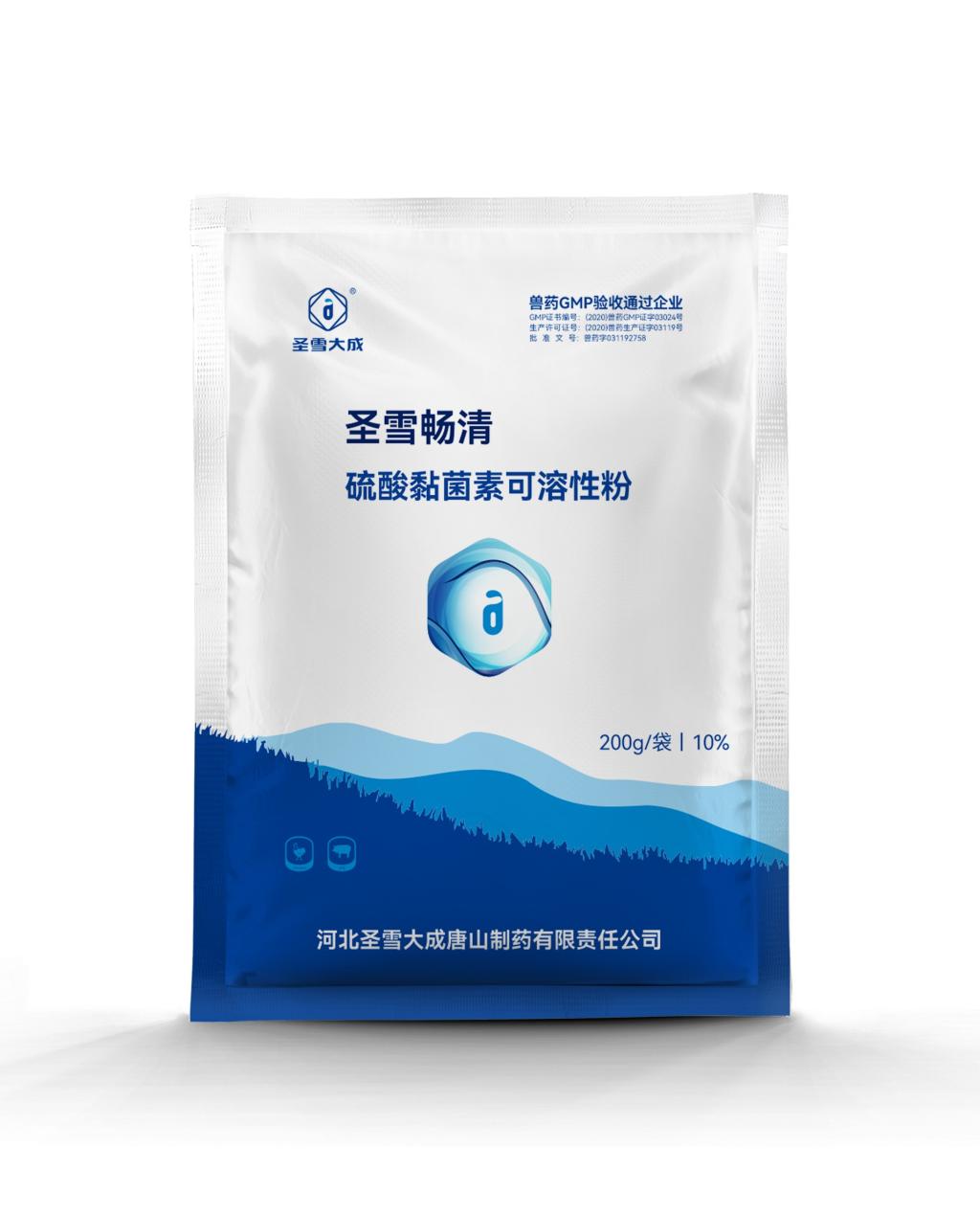Tel:0086 18231198596

News
Current Position:
Home >
News
>Global Significance: Colistin Sulfate Soluble Powder in Animal Healthcare.
Global Significance: Colistin Sulfate Soluble Powder in Animal Healthcare.
TIME:2023-12-28
I. Historical Context and Evolution:
A. Origins in Human Medicine:
Colistin, a polymyxin antibiotic, found its roots in human medicine, lauded for its efficacy against Gram-negative bacteria. However, concerns about toxicity and the advent of alternative antibiotics led to a decline in its use in human healthcare.
B. Transition to Veterinary Medicine:
The journey of colistin sulfate took an unexpected turn as it found renewed significance in veterinary medicine. Adapted for use in animals, colistin sulfate soluble powder became a cornerstone in combating bacterial infections across diverse species, marking a pivotal moment in the evolution of animal healthcare practices globally.
II. Applications Across Animal Species:
A. Poultry Farming:
In the bustling world of poultry farming, colistin sulfate plays a vital role in safeguarding flocks from bacterial infections. From addressing respiratory challenges to tackling enteric pathogens like Escherichia coli, colistin sulfate is a linchpin in maintaining the health and productivity of poultry, a critical source of protein globally.
B. Swine Production:
Swine, susceptible to respiratory and gastrointestinal infections, benefit from the antimicrobial properties of colistin sulfate. Its application in swine production contributes to the well-being of herds and ensures a sustainable supply of pork products, a dietary staple in many cultures.
C. Cattle and Livestock:
Cattle and other livestock species are not exempt from the perils of bacterial infections. Colistin sulfate, tailored to the specific needs of these animals, aids in preventing and treating a range of bacterial maladies, fostering the health of herds that are essential for global food security.
III. Global Food Security and Agricultural Economy:
A. Livestock Health and Productivity:
The health and productivity of livestock directly impact global food security. Colistin sulfate's role in preventing and treating bacterial infections contributes to the overall well-being of animals, ensuring a sustainable and efficient supply of meat, milk, and other animal-derived products.
B. Economic Implications:
The economic implications of colistin sulfate in animal healthcare reverberate globally. Livestock farming is a cornerstone of many economies, providing livelihoods and sustenance. The effective use of colistin sulfate contributes to the resilience and productivity of the agricultural sector, fostering economic stability.
IV. Global Challenges and Collaborations:
A. Antibiotic Resistance and One Health:
The global challenge of antibiotic resistance necessitates a One Health approach that recognizes the interconnectedness of human, animal, and environmental health. Colistin sulfate, as a crucial antimicrobial, is at the forefront of discussions about responsible use and collaborative efforts to mitigate the rise of resistant strains.
B. International Collaboration:
Researchers, veterinarians, and policymakers engage in international collaborations to address the complexities of antibiotic use in animal healthcare. Platforms for sharing knowledge, research findings, and best practices are vital in developing harmonized approaches to ensure the responsible and effective use of colistin sulfate on a global scale.
V. Regulatory Measures and Guidelines:
A. Regional Variances:
Regulatory measures governing the use of colistin sulfate exhibit regional variances, reflecting diverse perspectives and priorities. Some countries implement stringent restrictions, while others adopt guidelines that balance the needs of animal health and agricultural production with concerns about antibiotic resistance.
B. Harmonization Efforts:
Efforts toward harmonizing regulatory frameworks are underway to create a unified front against antibiotic resistance. International organizations and collaborations seek to establish common guidelines that align with scientific evidence, fostering consistency and accountability in the use of colistin sulfate.
VI. Public Health Implications:
A. Zoonotic Concerns:
The potential for zoonotic transmission of antibiotic-resistant bacteria from animals to humans underscores the public health implications of colistin sulfate use. Vigilance in surveillance, research, and risk mitigation strategies is imperative to address concerns about the spread of resistant strains.
B. Global Health Security:
Colistin sulfate's role in public health extends to global health security. As infectious diseases know no borders, the effective management of bacterial infections in animals, facilitated by colistin sulfate, contributes to preventing the emergence and spread of zoonotic diseases with global repercussions.
VII. Environmental Considerations:
A. Ecological Impact:
The ecological impact of colistin sulfate in animal healthcare is an area of growing concern. Residual traces of antibiotics in the environment can contribute to the development of resistance. Research endeavors aim to understand and minimize the environmental footprint of colistin sulfate to ensure sustainable practices.
B. Sustainable Practices:
The pursuit of sustainable practices in animal healthcare involves considerations of environmental impact. Efforts to optimize the use of colistin sulfate, explore alternatives, and implement responsible management practices contribute to a more sustainable and ecologically conscious approach.
VIII. Future Perspectives and Innovations:
A. Precision Veterinary Medicine:
The future of animal healthcare envisions the application of precision veterinary medicine, tailoring treatments based on individual animal characteristics. Research explores the integration of diagnostics, genomics, and targeted therapies to optimize the efficacy of colistin sulfate while minimizing the risk of resistance.
B. Technological Advances:
Technological advances, such as advanced diagnostics and data analytics, are poised to revolutionize the landscape of animal healthcare. These innovations provide insights into disease patterns, treatment responses, and the impact of colistin sulfate, paving the way for evidence-based and data-driven decision-making.
Conclusion:
Colistin sulfate soluble powder, with its rich historical journey from human medicine to its pivotal role in global animal healthcare, embodies a multifaceted significance. From ensuring the health and productivity of livestock to addressing global food security and public health concerns, colistin sulfate stands as a linchpin in the intricate tapestry of animal agriculture. As the world grapples with the challenges of antibiotic resistance, international collaborations, responsible regulatory measures, and innovative research pave the way for a sustainable future where colistin sulfate continues to play a vital role in fostering the health of animals and, by extension, the well-being of our interconnected global community.

 CONTACT
CONTACT




